I am away from my desk and my typewriter this weekend, but I’m kicking off national poetry month and 30 days of haiku anyway. Can’t wait to read all of yours! #lizsharespoems #30daysofhaiku #nationalpoetrymonth
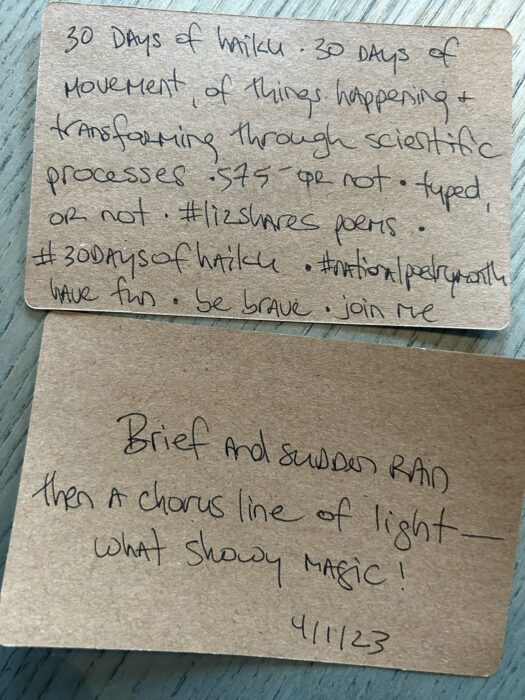
I am away from my desk and my typewriter this weekend, but I’m kicking off national poetry month and 30 days of haiku anyway. Can’t wait to read all of yours! #lizsharespoems #30daysofhaiku #nationalpoetrymonth

The Poetry Sisters’ prompt this month was to write an etheree, a relatively straightforward ten-line poem, with each line growing by a syllable, so that the first line has just one syllable and the tenth line has ten. That’s it! Fun, right? And hugely accessible for poets of all ages and experience.
(As an aside, I really love this form. I once became so enamored of it that I composed an entire, relentless chapter book out of etherees that, shockingly, did not sell. I did share a single etheree as part of the Thanku anthology that published several years ago, and I talked about that in this video I shared with students during early pandemic lock-down days.)
OK, back to our current prompt. Not just an etheree, but an etheree that somehow touches on transformation, the word we’re using as our overarching theme for the year. And, you might remember that I’m drilling down within that theme in order to explore various scientific processes. (So far I’ve looked at melt and oxidize.)
This month, as snow begins to melt all over the country and the squishy ground opens up to spring, I decided to write about decomposition. Which, I’m slightly horrified to say, made me think about true crime. So welcome to the place where mycelium meets My Favorite Murder, or something like that. The mind is a curious thing…
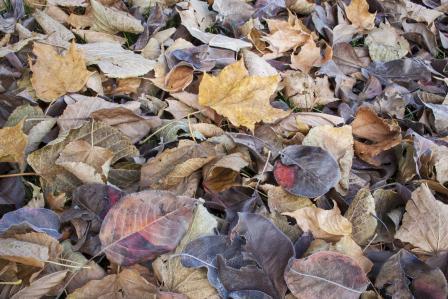
DECOMPOSE/decompose/verb
Liz Garton Scanlon
March
(melting)
putrefies
and disappears
winter’s evidence,
breaking forensic clues
down into strands of secrets,
covert carriers of what’s next.
Never mind everyone’s reaction,
just consume each story along the way.
You’ll find more etherees here:
Sara
Laura
Tanita
Tricia
Mary Lee
Kelly
and Poetry Friday is being hosted by our own Mary Lee at (A)nother Year of Reading.
If you’d like to write along with us next month, we intend to write poems “In the Style of” Pablo Neruda. Do with that what you will!
Consider this your invitation to join me in reading and writing haiku everyday in April for the 15th year in a row! I am still figuring out what my own personal prompts will be this year, but starting Saturday, come hell or high water, a haiku a day…
(I’ll be sharing on the blog at my website, and on instagram, twitter and facebook with these hashtags: #lizsharespoems #30daysofhaiku #nationalpoetrymonth and welcome you to do any version of the same.)
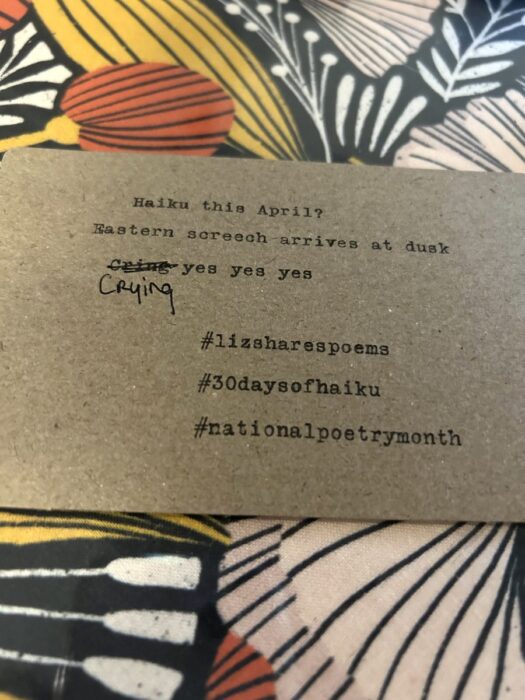
This month’s prompt was to write an ekphrastic poem — a poem based on an image or a piece of art.
I chose to write from an image Tricia offered up, from an exhibit at the Montclair Art Museum called Transformed. Perfect for our year of transformation! Anyway, this particular piece, called Urban Flora, is by Denice Bizot and is the metal from a hood of a truck, transformed!
Somehow, Bizot’s work — and the story behind the work — suggested to me a “this is the house that Jack built”-type of poem, so that’s what I’ve got to offer. I imagine Lucinda Williams playing on the radio….
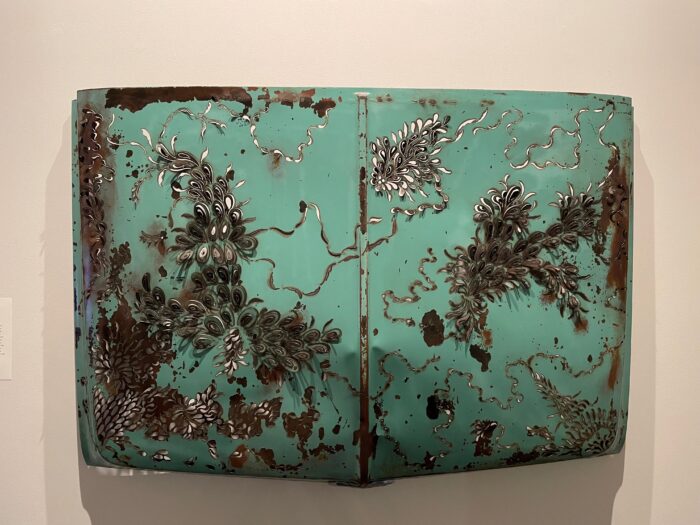
OXIDIZE/oxidize/verb
Liz Garton Scanlon
This is the road (the red, red road) that Dad drove
This is the truck on the red, red road that Dad drove
This is the truck that lurched and went clunk
And this is the hood of that clunky truck
the hood that Dad popped
on the side of the road
the red, red road
that Dad kicked
with his boot
as he spit
and he swore
on the life of that truck
Oh, this is the road
(the red, red road)
that Dad drove
To read more, visit:
Laura
Tanita
Tricia
Mary Lee
Sara
And you can find the Poetry Friday round-up at Tabatha’s The Opposite of Indifference.
As for next month, we’re writing etherees. This ten-line form begins with a single syllable, and each line expands by one syllable until the tenth line has ten. We’re continuing with our 2023 theme of transformation, but how you interpret that topically is up to you. You have a month to craft your creation and share it on March 31st (hosted by Mary Lee at A(nother) Year of Reading) in a post and/or on social media with the tag #PoetryPals. Join us!
Happy 2023, friends.
It’s a brand new year or, at least, that’s what we always root and hope for, us faithful, foolish start-again optimists. But so many of our most recent years have felt relentless rather than new, so it’s no wonder we (and by we I mean my Poetry Sisters and I) have decided to explore the idea of transformation in 2023.
To start with, we chose Cascade Poems, which transform the first stanza into additional lines throughout the poem. You’ll find a more detailed explanation and examples of the form here but honestly, I think you’ll get the gist.
Meanwhile, I’ve decided that I need a little something extra to help shape my work this year, something concrete or tangible to lean on, some proveable, explainable version of transformation. So, you’ll notice that my poems will all touch on, in some way, a scientific process. This first one, MELT, went somewhere I didn’t expect it to at all — my childhood fevers. This is the magic of a prompt or exercise, I think. The transformation (ha!) of one idea into another. Here goes…

MELT /melt/ verb
Liz Garton Scanlon
make or become liquified
make or become more tender
leave or vanish or disappear
says my fever to the ice
pressed to my temples
make or become liquified
says delirium to all reason
says the record playing spinning
make or become more tender
says each blurry softening
each terrifying letting-go
leave or vanish or disappear
(*all lines in itals taken or amended from various dictionary definitions)
And for more Cascade poems, please visit:
Tanita
Tricia
Laura
Sara
Kelly
Mary Lee
And Poetry Friday is at Bookseed Studio.
We are wrapping up the year, friends, with a simple prompt — the word (idea) (object) (form) “box.”
I chose to write about an empty one, using Denise Kreb’s 4×4 Form (for obvious, boxy reasons).
Here goes…
The Stuff of Dreams
Liz Garton Scanlon
An empty box
is no burden
till you fill it,
till it’s carried.
The weight borne by
an empty box
is handed down —
inheritance
or treasure or
obligation.
An empty box,
though, can be made
into our own.
Flattened! Transformed!
The stuff of dreams,
this empty box!

To read about the others’ boxes, go here:
Kelly
Tricia
Tanita
Mary Lee
Laura
Sara
And Poetry Friday is at Patricia Franz’s Reverie! (Thanks, Patricia…)
Better late than never, I’m chiming in with my recipe poem.
(I have an excused absence. My whole sweet and wonderful family came for the holiday week and togetherness was on the menu.) BUT. Here I am with my recipe for… a habitat!
The Making of a Habitat
By Liz Garton Scanlon
Find
food such as thimbleberries or hickory nuts
(you may substitute anything
from ants to antelope
depending on appetite
and inclination)
Also, water, plentiful and preferably unpolluted
Air as filtered through the trees
and shelter
(may use aforementioned trees
or nearly any cave
or crook
or cranny)
Don’t leave out space to roam, range, recreate
and procreate
as necessary
… or desired
Jump to recipe!
Gather and weigh all ingredients
Aim for balance
Do not rush, do not miss steps, do not leave anything out
Over time, this recipe becomes self-sustaining
Beautiful, even
a certain, fragile, souffle-like kind of perfect
Make yourself at home here
But do not disturb
My pals’ poems are here:
And Ruth hosted Poetry Friday here!
n December we are letting box inspire us. Your poem can be about a box, in the form of a box, about Boxing day, a boxing match, etc. Let your imagination run wild! We hope you’ll join us. Are you in? Good! You’ve got a month to craft your creation(s), then share your offering with the rest of us on December 30th in a post and/or on social media with the tag #PoetryPals. We look forward to reading your poems! in a post and/or on social media with the tag #PoetryPals. We look forward to reading your poems!
So, this month we committed to writing dansas — a poetic form with prescribed stanza lengths, a rhyme scheme and a refrain that’s meant to resemble dance of sort (thanks to the French for the name…) I think the rules will be obvious to you, so I won’t go into detail but I’ll offer up a few links here and here.
I had so much fun getting into character last month for our definito challenge that I decided to lean on that crutch a little longer. So, without further ado, my dansas — inelegant but fun!
The Middle School Dance: Three Dansas
Liz Garton Scanlon
1.
Shall I ask him to dance?
Can I screw up the nerve?
(I prefer to observe
through my bangs, at a glance!)
Shall I ask him to dance
or stay put and reserved?
Will I throw him a curve
if I make my advance?
Yes, I’ll ask him to dance,
like it’s what I deserve!
Deep breath now and… swerve
toward a budding romance
if I ask – I am asking! – that boy there to dance.
2.
I’m regretting everything,
questioning the clothes I wore,
keeping eyes glued to the floor.
I crack my knuckles, twist and wring
I’m just regretting everything!
I inch a little toward the door
I’ve seen enough and need no more.
But wait – my heart – a little zing –
am I still regretting everything?
Lights are pulsing, music roars
I see her coming, know what for.
She asks, I answer, my heart sings –
I’m not regretting anything!
3.
One step forward, hand meets hand
shivers rolling down the spine
(obviously that’s a sign…
and not exactly what they’d planned)
one step forward, hand meets hand
swaying, breathing, looking fine
music rushes, lights all shine
the space at once grows close, expands
one step forward, hand meets hand
gym floor shuffle, quite divine
and then it ends, that’s it, it’s time
the music stops but they still stand
take one step forward, hand in hand
You can read others here:
Sara
Tricia
Tanita
Mary Lee
Kelly
Laura
And Jone is hosting Poetry Friday — thanks Jone!
Finally, if you feel like joining us next month,we’re creating recipe poems! Your choice of form, length, meter, or topic, but each poem will be an assemblage of elements, using recipe text/cooking instructions to create …something. From a recipe for disaster, to your favorite aperitif, you have a month to craft your creation and serve it forth on November 25th in a post and/or on social media with the tag #PoetryPals.
This month’s challenge was to write a Definito — a term coined (and form defined) by the brilliant Heidi Mordhorst! (Yikes — our poems aren’t usually read by the inventor of the form!) The basic parameters of the Definito are to write an 8-12 line poem geared toward 8-12 year-olds that “demonstrates the meaning” of a word, which serves as both the title and the ending of the poem.
For me, there was something about writing for this particular audience that suggested a narrative right away, so I’ve written two related poems that could lead me to even more. Here goes (and with apologies to Ms. Mordhorst!):
Broken
Pieces of sidewalk chalk
My monkey-bar arm
Grampa’s voice
when he says goodbye
Mom’s car-in-the-shop
and the vacuum cleaner
and the little window
over the kitchen sink
Things that are in pieces,
like my heart or my family
all broken
Promise
Something sure
Something lasting
Something hopeful
Something spoken
Something wobbly
forgotten
left behind
and broken
A word that means something
(everything) until
it just plain doesn’t:
promise
Now, go find the other Definitos here:
Andi
And here’s all the rest of Poetry Friday, at The Opposite of Indifference!
As for next month, we’re writing rhyming Occitan verse poems called Dansas. We’d love for you to join us!
This month, a bop poem — three stanzas, with no proscribed rhyme or meter, 6/8/6 lines respectively. And those stanzas are meant to set up an argument, elaborate upon that argument, and… well… resolve it. PLUS, there’s a refrain in between each one. We agreed, as a group, to use the refrain: Let’s kick that can down the road.
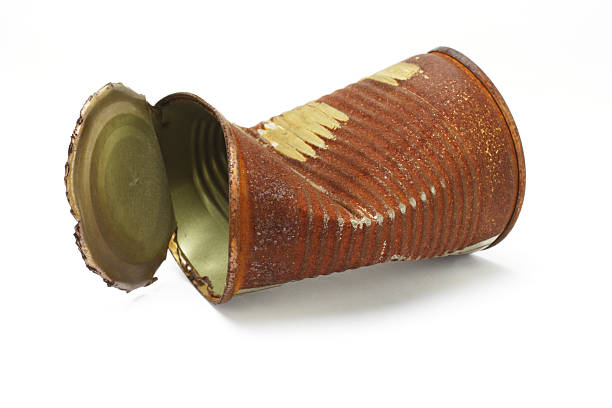
So. Shall we?
Kick That Can
LGS 8/22
Deadlines and appointments,
insomnia and overwhelm,
a rolling scroll of obligations…
each item in this magpie’s nest
mocking me – a pointed finger,
a dusty mirror.
Let’s kick that can down the road…
It’s not that I don’t know
what to do (lists and agendas,
schedules and sticky notes,
fresh air and meditation)
but rather that the doing
undoes me, that the nest itself
is a messy comfort,
is a fragile cup.
Let’s kick that can down the road…
I collect things to do
and places to be and promises
to keep, let’s call it mindful
miscellany, let’s call it
gathering, let’s call it
life. And
let’s kick that can down the road
Go read these now, too!
Mary Lee
Sara
Kelly
Andi
Oh — and look who’s hosting Poetry Friday today! Helllloooo, Tanita!!
As for next month, we’ll be writing definitos! Join us?